Updated August 4, 2022 at 11:38 AM ET
There's a smile that comes to Alexandra Forseth's face when you ask her about her dad, Alirio Jose Zambrano. It will soon be five years since they last saw one another, but when she talks about him, it's the little things she brings up — like the furniture from Ikea.
"Anyone [who] knows my dad, it's like you can't find anyone more annoying about following the rules," she says. "He's an engineer to the T, and it's just like, oh my gosh. He's the guy that you get the Ikea set and it's like, you better not freaking start until all the pieces are counted."
It's part of the reason why practically nothing about his situation makes sense to her. Not his arrest in Venezuela in 2017. Not the "express" investigation that lasted 24 hours. And certainly not his conviction at trial. The Venezuelan authorities say Zambrano, along with five other employees of the Houston-based energy giant Citgo, are guilty of corruption. Forseth, her family and the U.S. government say Zambrano, and the rest of the so-called "Citgo 6," were wrongfully detained.
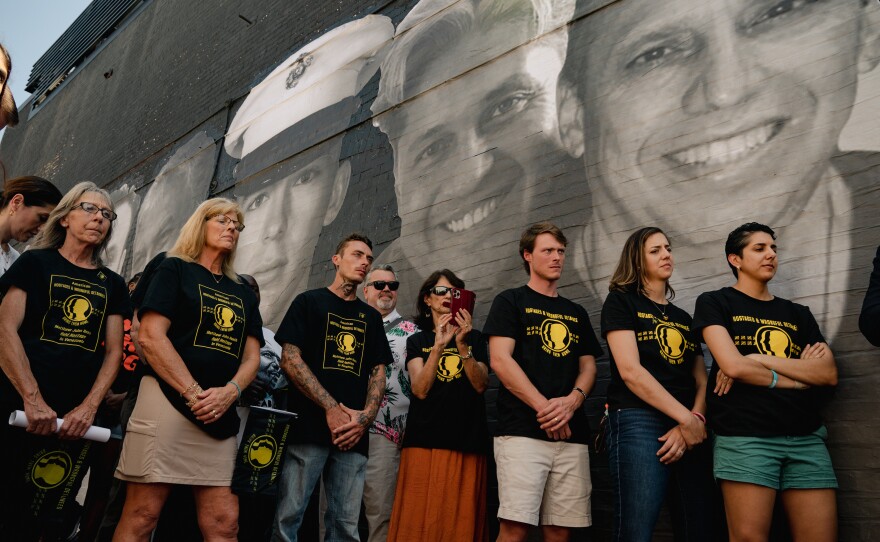
"He's just a really stalwart person that has values, and there's not a person he didn't meet that he wasn't really inspiring," says Forseth. "It's just weird. It's weird to be in this situation. It's so counter to his ethos."
When her father was first arrested, Forseth followed what for decades was a familiar playbook for the families of U.S. citizens who have been taken hostage or wrongfully detained by state or non-state actors. After all, it wasn't just her father who was detained, but also an uncle, Jose Luis Zambrano. She stayed quiet and avoided the media spotlight, worried about how any slight misstep or ill-worded statement might complicate efforts to secure their release. The feeling, Forseth says, was "don't make anybody mad."
Today, Forseth and families like hers are done being quiet. Frustrated by the pace of diplomatic efforts, terrified for the mental and physical well-being of their captured loved ones, and desperate to reunite, these families have shifted strategy. Rather than not speaking out, they have decided that bringing greater attention to their plight and intensifying political pressure on the White House may just be their best and possibly last card to play.
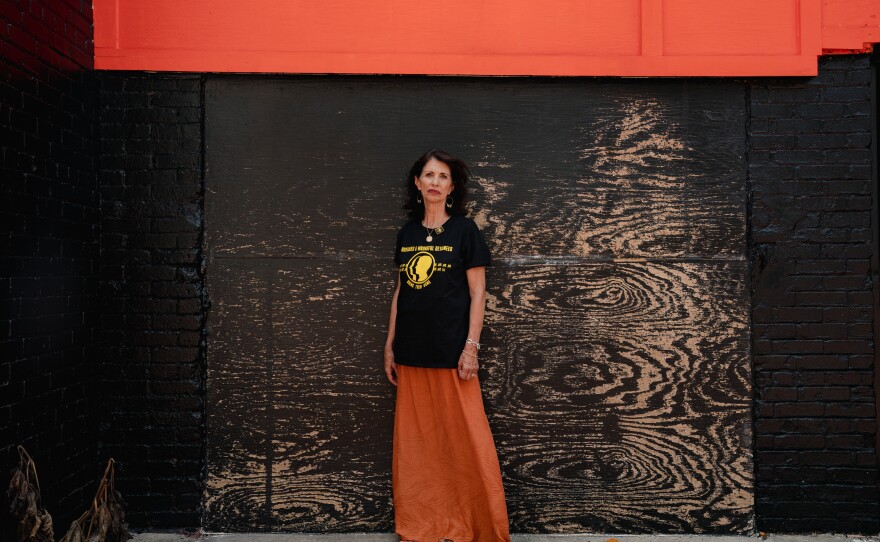
"We were always told by our government to keep quiet, that that would bring them home," says Diane Foley, whose son, the journalist James Foley, was kidnapped in Syria in 2012 and killed by ISIS in 2014. "But we're beginning to realize that being quiet tends to protect the captors and our government from seeing the urgent need to pay attention to innocent Americans greatly in need of their government at this moment in time."
In May, Forseth helped launch the Bring Our Families Home Campaign, an effort to push President Biden and other leaders to use "any and all means available," including prisoner trades, to secure the release of the more than five dozen Americans who are being held hostage or wrongfully detained abroad, according to a count by the James. W. Foley Legacy Foundation. Less than three months later, the campaign has grown to include more than 20 families, including relatives of Brittney Griner, the WNBA star who has been sentenced to nine years in a Russian prison on drug charges.
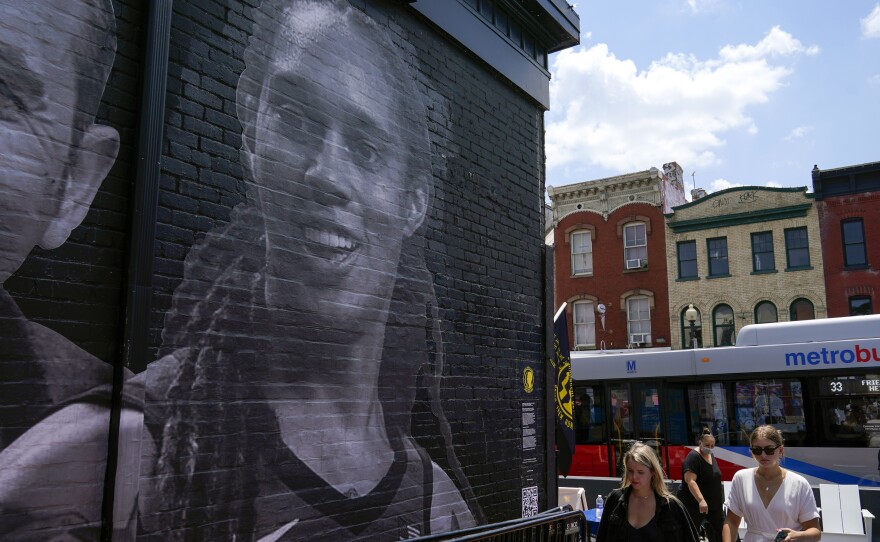
The Trevor Reed case was an aha moment
Families never used to organize like this, says Mickey Bergman, vice president and executive director of the Richardson Center for Global Engagement. The center, founded by former New Mexico Governor Bill Richardson, works to negotiate the release of prisoners and hostages held by hostile regimes.
"It used to be a collection of individual families fighting their own fight and dealing with their own struggle in trying to get their loved ones back home," says Bergman. "And that has always been the way it was, partially because it's a very individual fight; because each case is very, very different than the other. And the pathways are different."
For some members of Bring Our Families Home, the aha moment came in April, when the Biden administration announced a prisoner swap with Russia for the jailed U.S. Marine veteran Trevor Reed. In exchange for Reed, the U.S. agreed to release Konstantin Yaroshenko, a pilot sentenced to more than 20 years in prison for conspiring to import more than $100 million of cocaine into the country. In July, Secretary of State Antony Blinken revealed that a similar swap had been offered in exchange for the release of Griner and another American detained in Russia, Paul Whelan.
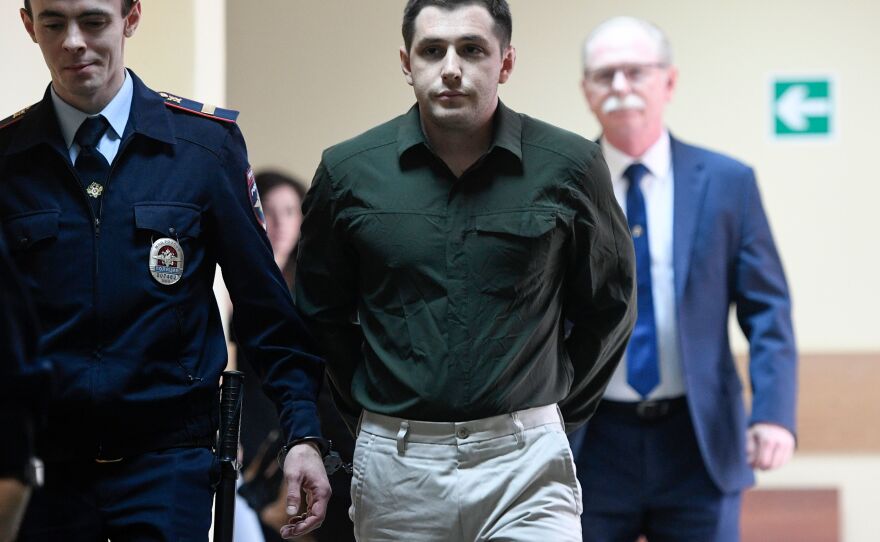
The Reed exchange followed an unorthodox and highly public pressure campaign by Reed's family to secure a meeting with President Biden. In March, they protested outside a Biden event in Texas, prompting a phone call from the president later that day, according to Reed's parents. Later that month, Biden met with them for 40 minutes after they demonstrated outside the White House. Within weeks, Reed was free.
Bergman says it was a "glass-shattering moment" for families.
"What was different is that the Reed family did not comply by the rules," he says. "They were loud, they were obnoxious, they were rude when they needed to be. And they were insistent. ... They forced the issue."
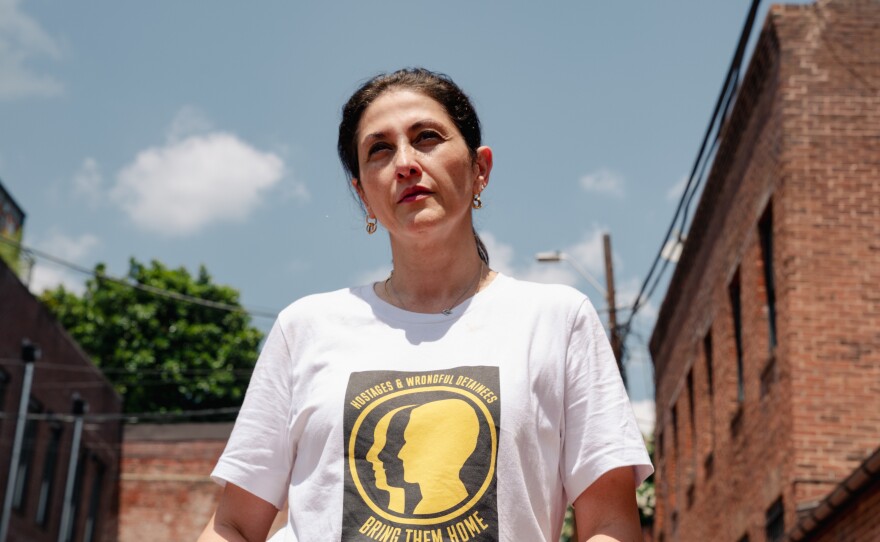
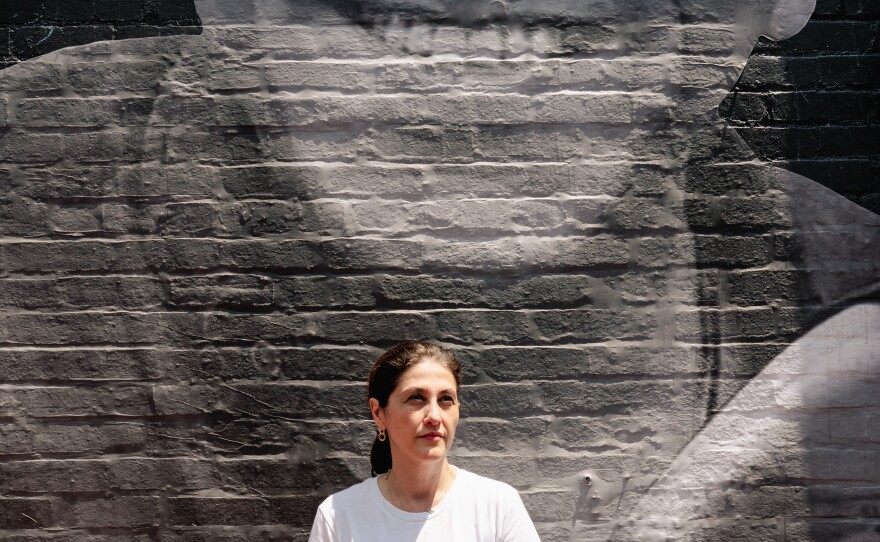
Neda Sharghi was in her car when she heard the news about Reed's release. Since 2018, Sharghi's older brother, Emad Shargi, has been detained in Iran, and like other members of Bring Our Families Home, she has been lobbying for a meeting with President Biden to discuss his case.
"That was like a lightning moment," says Sharghi, "because they had been quite vocal and sort of doing the kinds of things that we hadn't done in the past, like directly appealing to the president, holding events ... techniques that we had never used. And, you know, frankly, we didn't think they would work."
Families are rethinking how they can best exert influence
While the Reed case may have brought clarity to families, it didn't necessarily make the decision to be more vocal any easier. For years, families have seen their options framed as a binary choice: avoid publicity and trust what can be a long and grueling diplomatic process, or make noise and risk increasing the asking price of the captors. Indeed, many families continue to view a much less public campaign as their best strategy.
"The cons are obviously that a public advocacy has the risk of elevating the value of that person to that government, to the captor. So that's the risk. That is the risk. And it's a big one," says Foley.
It's a risk Sharghi and others know inherently well.
"It's really, really scary," she says. "And then, you know, as you're going through [this] thought process, days pass, weeks pass, months pass, and all of a sudden you're like, OK, so like where has this gotten me? And then as you talk to people who have gone through this, they tell you to become public."
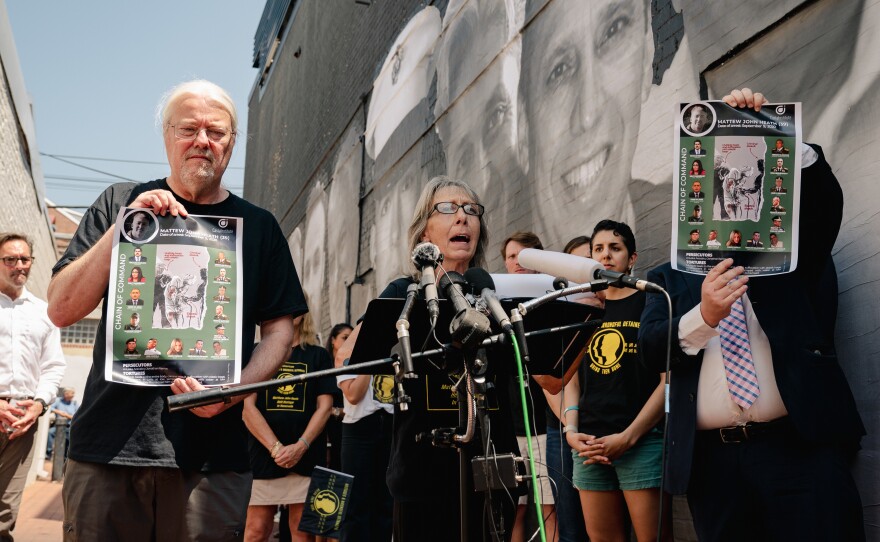
Bergman says families have increasingly come to realize there is nothing they themselves can say to sway a captor one way or another. He and others also point to research showing that a no-concessions policy on the part of the U.S. does not in itself deter a potential captor.
"There's very little they can say that will damage their loved ones. And the reason for that is because the captors are not looking at the individual families," Bergman says. "They're looking to inflict a political price and get a political reward from our government. And so if you understand that or you accept that, that means that any media strategy or any media engagement by a family of a prisoner in the U.S. is really aimed at our own administration. It's not aimed at the captors."
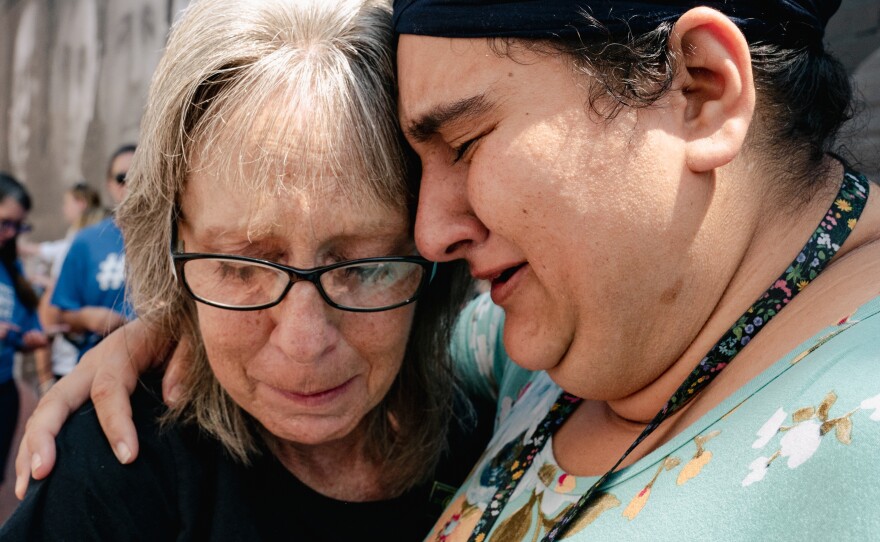
What the White House is doing
Forseth says it's a lesson she and others have gradually come to internalize.
"I think the biggest thing is that this administration in particular has shown to be extremely reactive in their activities and in how they handle their agenda, right, wrong or indifferent. In the hostage diplomacy space, you see that more clearly than almost anything else," she says.
It goes beyond the Reed case, families say. In July, for example, Griner's wife, Cherelle Griner, appeared on CBS to discuss how Biden had not responded to a handwritten note from the WNBA star pleading for help.
The next day, Biden and Vice President Harris spoke with Griner's wife by phone.
"Even though all of us try to be composed, professional, giving people the benefit of the doubt ... what they're showing is you only get attention if you're the squeaky wheel," Forseth says.
It's a perception the White House has sought to push back against. In the weeks before Reed's release, the administration helped secure the release of a member of the Citgo 6 from Venezuela, Gustavo Cardenas, as well as another man, Jorge Alberto Fernandez. Earlier this month, the Biden administration also issued a new executive order that, among other things, authorizes government agencies to use financial sanctions and visa bans as a tool to secure the release of detained Americans.
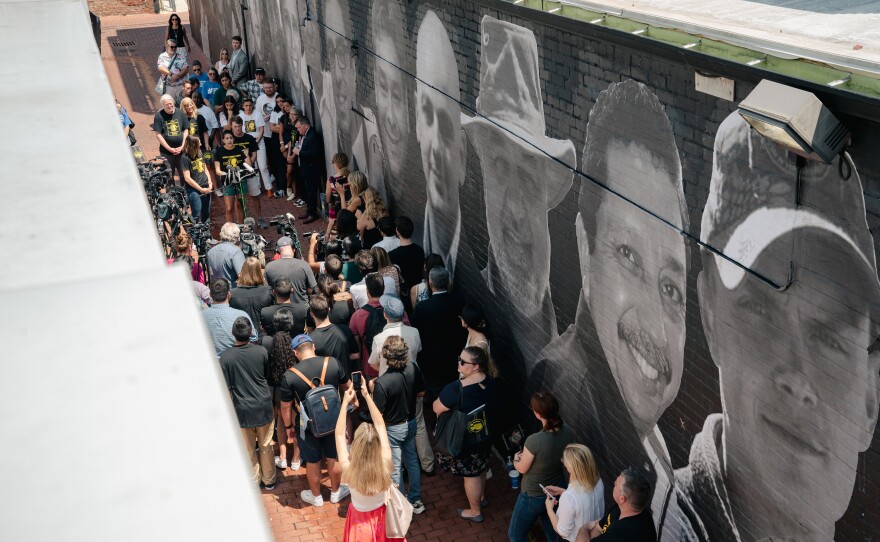
But administration officials caution that no two cases are alike, meaning negotiators, and families, need to be flexible.
"In some cases, you'll find a sanctioning tool probably very effective to put pressure on the other side. In other cases, not so much," said Ambassador Roger Carstens, the special presidential envoy for hostage affairs, in an interview with NPR.
The same is true when it comes to prisoner swaps, says Carstens.
"Again, it's really country-specific. ... At times a prisoner swap can be considered, such as in the case of Trevor Reed," says Carstens. "Other times it's just absolutely the wrong tool and wrong negotiating point to be bringing to bear."
For that very reason, Forseth says, President Biden needs to meet together with families whose loved ones are detained in the same country.
"We can all agree on that," she says. "That is such a simple softball to me. If you have time to meet with a K-pop group, I think you can meet with American citizens who are suffering because their loved ones are Americans."
The campaign has created a support system
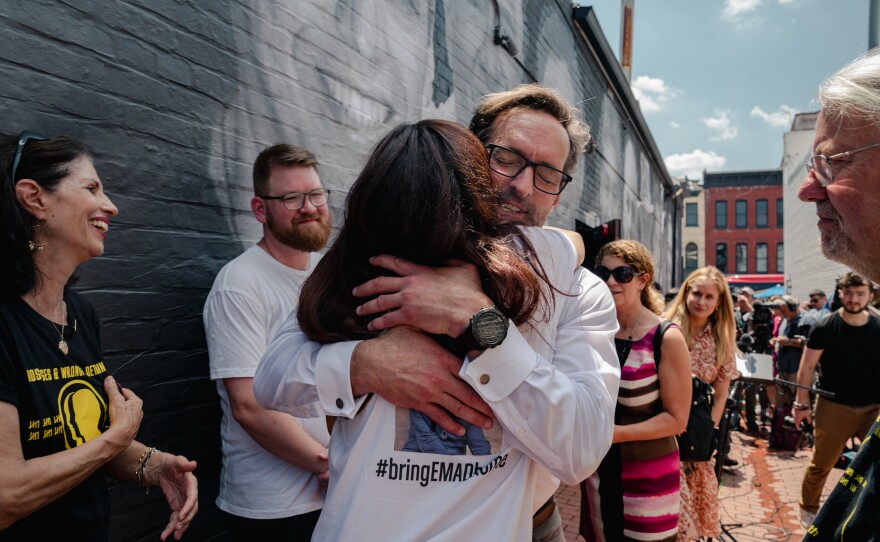
Until that happens, Bring Our Families Home will continue to organize. The campaign has helped families speak with a unified voice, its members say. And it has created an emotional support system of sorts — a club they're thankful to have, even if it's a club no one wants to ever have to join.
"People are incredibly empathetic, but then you don't want to burden them with the terror that's going on in your own life," says Sharghi. "I'm so scared I'm never going to see my brother again. I can't sleep at night. I have nightmares ... You start throwing a lot of things inside and you start becoming isolated and you alienate yourself from situations that you wouldn't normally alienate yourself from."
It can pull a person into a dark place, she says. But the campaign has given her a way to connect with families who can not only help her to fight for her brother, but who understand what she is going through in a way most people never truly will.
"I don't feel like I'm burdening them with the troubles that I'm going through or that we're going through," she says. "They get it."
That type of support is invaluable, as it's now been more than four years and counting since Sharghi last saw her brother. The longer he's detained, she says, the harder it has been to stay hopeful.
"Last summer, if you'd asked me, I'd say I was incredibly optimistic. We thought he would come home last summer," she says. "I'm exceedingly getting less and less optimistic, but that's just making me work harder and harder."
Copyright 2022 NPR. To see more, visit https://www.npr.org. 9(MDAzMjM2NDYzMDEyMzc1Njk5NjAxNzY3OQ001))






